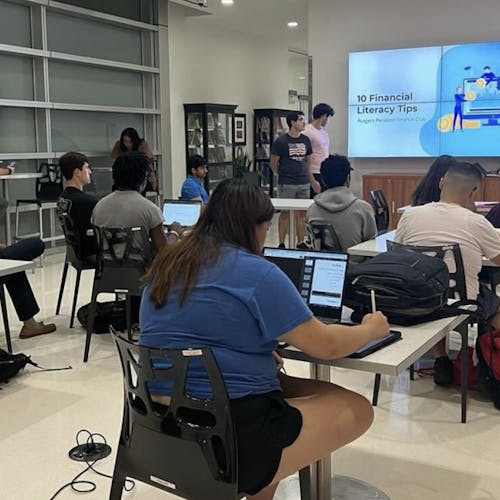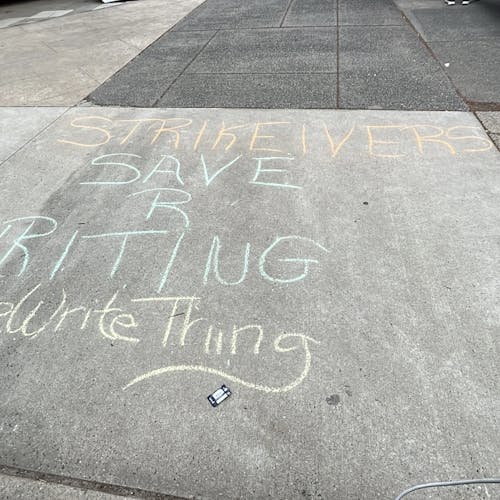Rutgers students produce documentary about 'hijabi experience'

Last January, BuzzFeed released a short video following a day in the life of four woman as they wore hijabs for the first time.
Two Rutgers students saw a problem with Buzzfeed's video.and its inability to fully validate the experiences of women who wear hijabs. BuzzFeed should have interviewed hijabi women and asked them to speak for themselves, said Hamna Saleem, a Rutgers-Newark College of Arts and Sciences senior.
Along with fellow senior Dina Sayedahmed, Saleem created a longer documentary called Hijabi World explaining the experiences of hijabi women.
“We felt that although BuzzFeed’s social experiment might have been well-intentioned, it effectively dismissed the legitimate hijabi narrative,” Sayedahmed said.
The goal was to reclaim their narrative, she said.
"But we also wanted to poke fun at some of our struggles, like bad hijab days, tacky burkinis, shopping for long-sleeved shirts and dresses in the middle of summer and having to match our hijabs with our outfits and make up,” Sayedahmed said.
Their project took a serious turn after the shootings at Chapel Hill, Saleem said
Three Muslim students at UNC-Chapel Hill were shot execution-style in their apartment by their neighbor, a man who was known to make Islamophobic remarks.
"We decided then that we also wanted to talk about Islamophobia,” Sayedahmed said.
The documentary was dedicated to the victims of the shootings, she said.
Sayedahmed wants to help hijabi women feel comfortable in their own skins, she said.
“A lot of us grow up seeing images of women in hijab being victimized and oppressed by men, by imperial forces (and) by societal customs,” she said. “We don't always see reflections of ourselves in a positive light, and this definitely has an impact on the way we view ourselves. A lot of us have had to unlearn self-hate."
For Saleem, and all the girls in the video, it was a choice to wear the hijab.
People assume that women do not have a choice in wearing the hijab, but Saleem said there is no parental or male pressure to wear it.
“We’re taking an intimate part of our lives and putting it out there,” Saleem said. “When you break down the wall of vulnerability, that’s when people really start listening.”
The video went viral on Facebook. At its current standing, it has 1.7 million views on Facebook.
Regarding the feedback from the public has been positive, Saleem said.
“We wanted people to listen to us and relate, and that’s what we got," she said.
Professors have presented the documentary in class, proving that the documentary can be used as an educational tool.
Saleem wants non-Muslim viewers to understand that women who wear hijabs are strong and independent.
Saleem said that she had to learn patience while working on this project.
“I want people to see it. But at the same time, I want it to be the best that it can be,” Saleem said. “We were lucky to find a great batch of girls. Girls that we knew that are completely comfortable in their own skin."
The New Americans Program became involved and had several cameramen filming, Saleem said. She and Sayedahmed acted as advisors, ensuring that the message remained intact.
In May, the two went to the Montclair Film Festival. Over the summer, the New York Times Lens blog published an article on the documentary.
“I was just happy knowing one person has watched it,” Saleem said. "To know that over a million people have watched it is just overwhelming."
Later the Atlantic featured the documentary and it premiered at the People’s Film Festival.
“We've had to work very hard for the strength we have now, but we hope Hijabi World could change this and help other Muslim women who wear hijab feel comfortable in their skin and embrace and love themselves,” Sayedahmed said. “Our work isn’t over."
Faith Hoatson is a School of Arts and Sciences sophomore majoring in linguistics and French literature. She is a correspondent for The Daily Targum.



